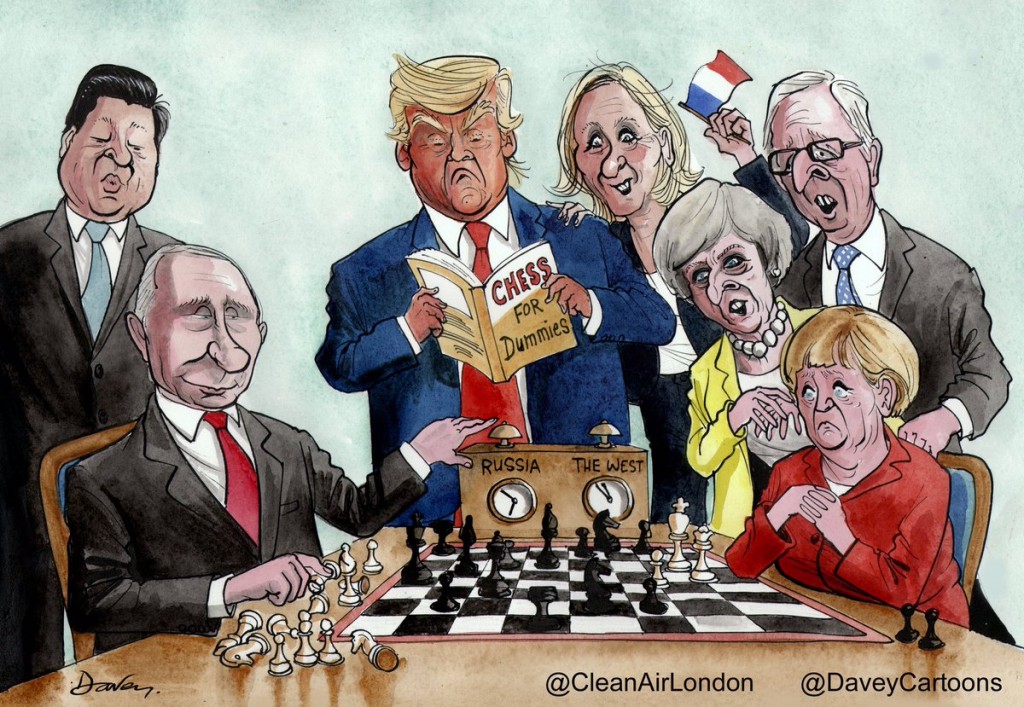Is this Cold War 2.0?
Esam Sohail
One has to wonder if the Cold War really ended or, after a brief interregnum of the Boris Yeltsin period in Russia, simply started back up again for round two. Though it is commonplace to frame the said “war” in terms of the capitalist world versus the communists, such a simplistic perspective misses the far deeper cultural cleavages between the Russian and the Western approach.
As early as 1830s, French politician and author Alexis de Tocqueville had suspected, in his seminal work ‘Democracy in America’, a great future conflict of some kind between the then-nascent United States and the then-mighty Russian Empire, grounded not necessarily on political regimes but on the vast cultural chasm between the two. That analogy could be easily extended to include the pluralist democracies of the West as part of an America-centric camp.
In the almost 200 years since de Tocqueville’s perspicacious observations, Russia has left no doubt about its innate desire or proven ability to expand beyond its trans-Ural core in every direction, corralling up smaller hapless polities like Georgia, Ukraine, Abkhazia, Estonia or Poland, either in a de facto or in a de jure manner. This expansionism has often been followed by cultural Russification and forced population shifts to make the results of such kulturkampf more permanent than an ordinary imperialist design would have accomplished.
Cultural Russification is more than Pushkin and the Bolshoi. For political economists, it is a set of mores that stands in stark contrast to pluralist liberal democracy: Centralized authoritarianism, medieval nationalism undergirded by elements of xenophobia, patriarchy, homophobia, ritualized public displays of the official religion, and scepticism for individual liberties and basic human rights coupled with a populist admiration for majoritarian privileges.
The cultural contrast with the West, thus, could not be greater. It was inevitable that even with the demise of the Soviet Union, there would be conflict at some point with the EU and NATO rapidly pulling in newly-freed Eastern European countries on Russia’s doorstep. It is no surprise that a resurgent Russia under former KGB supremo, Vladimir Putin, saw this as a threat and went to work to weaken both the EU and NATO.
Investing directly by promoting erstwhile fringe populists in the US (the Tea Party wing of the Republican Party), the UK (Brexiteers), France (Le Pen), Italy (Salvini), Germany (AfD) and other places through engagement and publicity on its worldwide RT communication network, and indirectly through social media propaganda via its innocently-named behemoth Internet Research Agency, the Russian regime brought about a near revolution in the West … with anti-EU and anti-NATO populist demagogues in or very close to power in the major capitals of the West by the time the year 2019 dawned. Canada’s security services are taking heightened precautions to deny Russian entities opportunity to meddle in October’s general elections.
Putin’s dividend from this election interference masterstroke has been threefold: One, he got kindred spirits sceptical of pluralism and individual liberties into the political mainstream in the major Western democracies; two, he weakened, perhaps mortally, both EU and NATO; three, for the doctrinaire anti-Western intellectuals in the developing world, he provided reassurance that Moscow is back in the game as a counter-weight to the Western world.
The Russian dictator’s savvy is evident in that he did not just target politicians and political parties for cultivation. His outreach went into populist think tanks, interest groups, religious organizations, climate change deniers, anti-immigrant outfits, anti-war organizations, and even ostensibly libertarian groups.
And in the largely open societies of the West, not only is such engagement tolerated, but is generally legal. In a very real way, Vladimir Putin’s proverbial multi-dimensional chess-playing abilities are using the West’s own tolerance and pluralism to undermine those values from within, slowly but steadily.
In ways that were probably not realized at the beginning of this round of Russian chess, Putin’s proxies have carved out a solid space for themselves in the populist, nativist, and socially conservative political sphere in at least half a dozen Western democracies. Whether these proxies can be politically tackled or not sooner than later is a question that will determine who wins the second round of the Cold War.
 Jahangir's World Times First Comprehensive Magazine for students/teachers of competitive exams and general readers as well.
Jahangir's World Times First Comprehensive Magazine for students/teachers of competitive exams and general readers as well.



